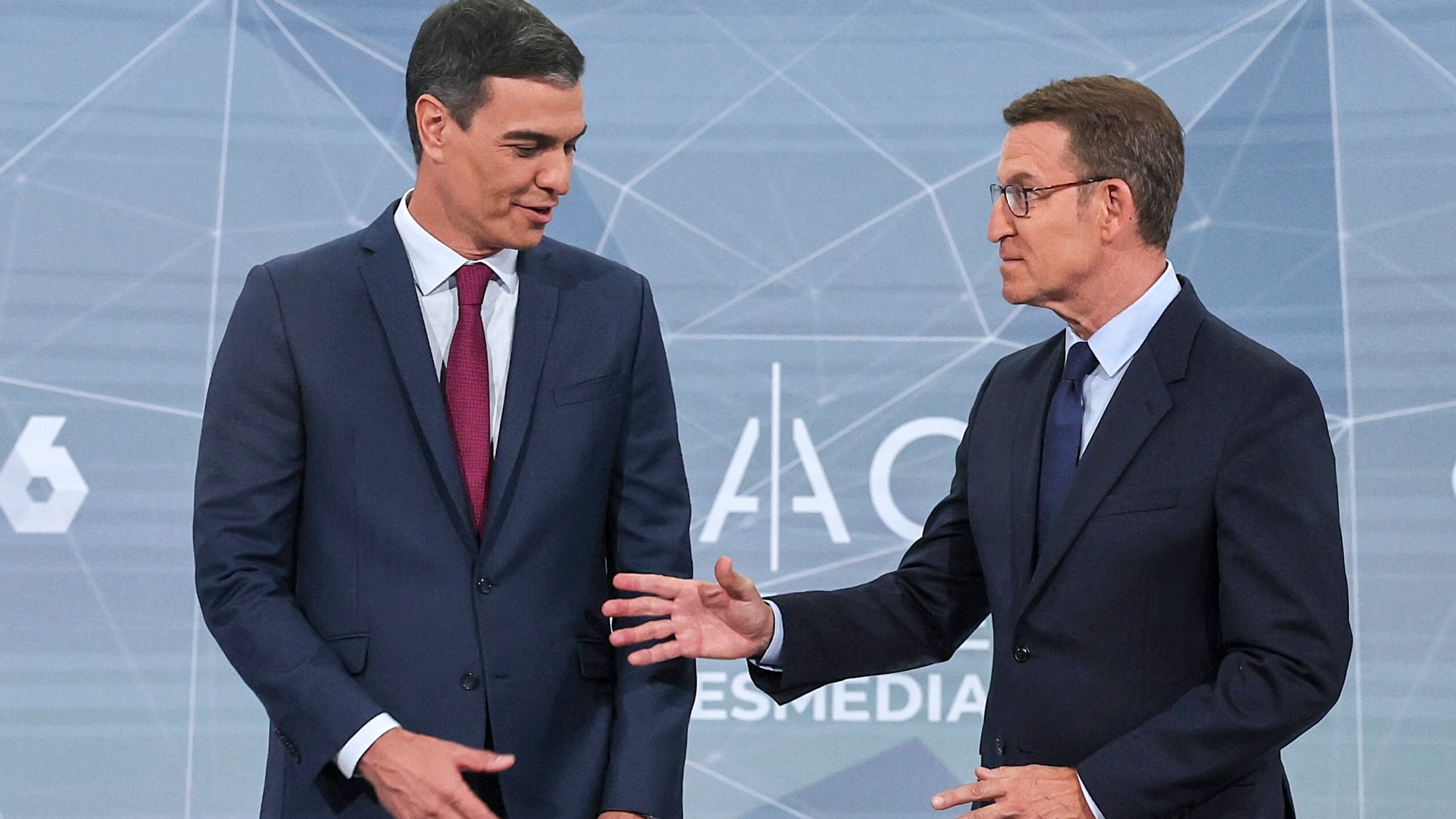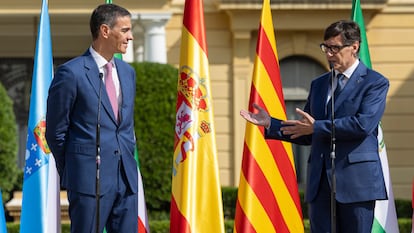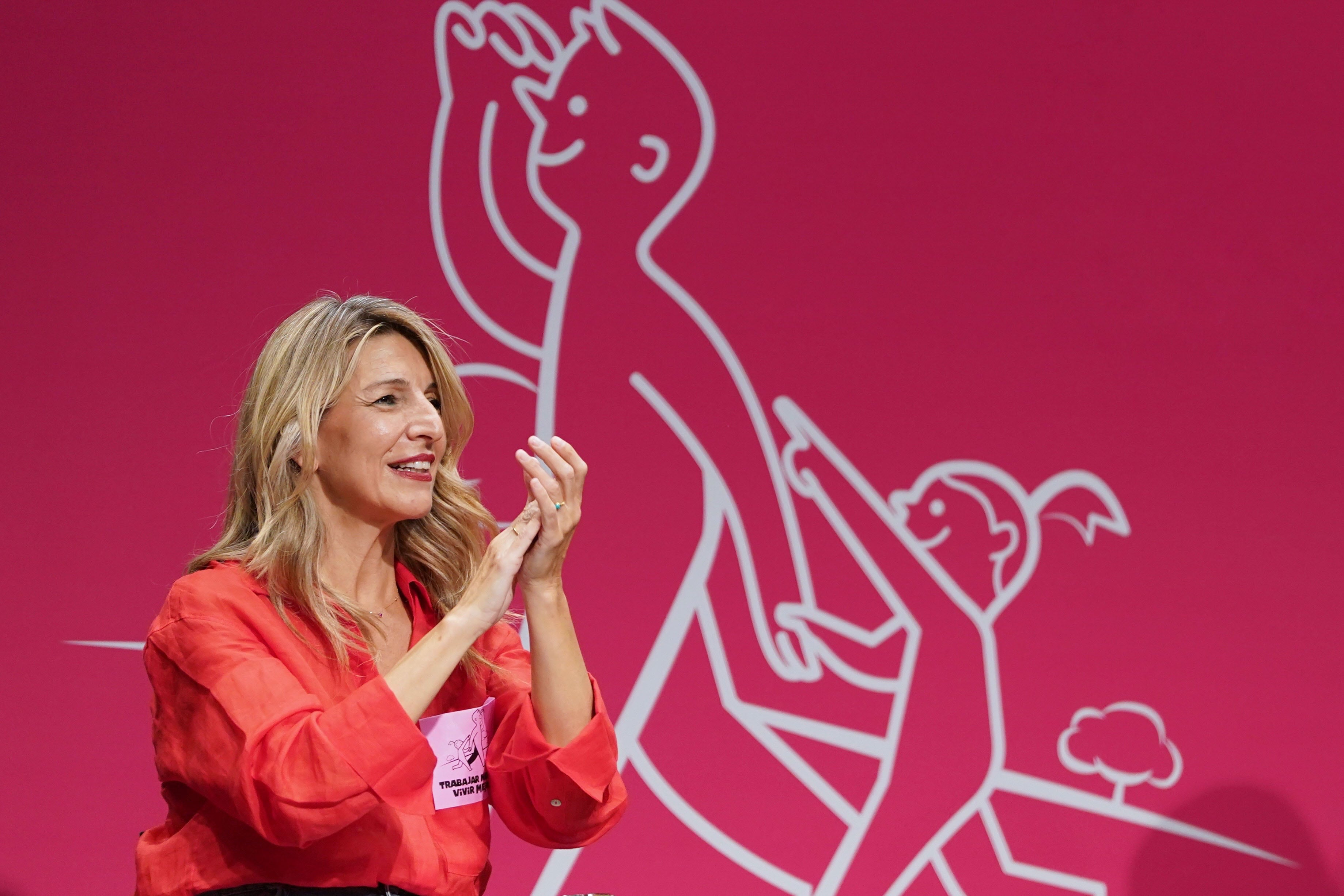A law will first force democracy to make at least one public debate in each election | Spain

The Council of Ministers has presented a draft law that would end a long and very unproductive Spanish tradition in all electoral campaigns: The debate debate. There will be no more discussion: the government proposes to change article 66 of the Organic Law of the General Electoral Regime (Loreg) to make at least one mandatory debate among all candidates in public chains in all electoral processes, This is not only nationals, but also the regional ones. The reform will need the absolute majority of the Congress, but the government believes to have it because there is an important consensus within most of the investiture and even other groups could support it, waiting for the position of the PP. It would end with an eternal debate of the debate that has ended up with frustrations and electoral campaigns without any debate, only one in a private chain or meetings with absent candidates. If this law is approved, none of these things may happen again.
Since 1993, when electoral debates began in Spain, which were already common in other countries with more democratic tradition, with Two decisive crosses between Felipe González and José María Aznar who marked the campaign, Until 1996, when Aznar, who was already a winner, decided not As Mariano Rajoy’s decision in 2015 to send Soraya Sáenz de Santamaría, his number twoto the debate to Cuatro with Pedro Sánchez, Pablo Iglesias or Albert Rivera, Sánchez’s attempt to make a single debate in 2019, which ended up to do two in two consecutive days, something unpublished and not very rational, or the clamorous empty chair left by Alberto Núñez Feijóo in the last debate to four in July 2023that some experts point out as an error that cost him very expensive, the debate on the debate has been the norm in all campaigns.
The reform of article 66 of the LOREG, which will now be submitted to all mandatory reports, including that of the Central Electoral Board, which governs the electoral processes, implies that the new rule will set “the obligation to celebrate, at least, a debate during each electoral campaign in the media of public ownership, which will be obliged to attend the political forces that compete in those elections except for just cause that is accepted by the electoral board. competent ».
The norm is established that they can participate in this debate “all the candidates of the political formations that obtained representation in the previous equivalent elections” and opens the possibility that representatives also intervene from which the central electoral board calls “significant political groups”, this is what, despite not having presented the previous equivalent or not having obtained representation in them, “in subsequent elections in the territorial area of the territorial area of the territorial. Public in question have obtained a number of votes equal to or greater than 5% of the valid votes cast, ”says the Executive. It is such a way to give more plurality to debates. Private media are not subject to these obligations, but if they make debates, « they must respect the same principles as public media and that set the Loreg: political pluralism, informative neutrality, equality and proportionality, » says the Executive. This is something that already happened in the past, and the Electoral Board forced to include more parties in those meetings to some private media.
Anonymous microdatos
The Government also includes in this draft another of the initiatives that had included in its so -called Action for Democracy Plan, the idea of forcing poll companies to publish all microdatos, something that has already made from the beginning 40DB., The company that prepares surveys for the country and the SER chain. The current legislation, explains the government, indicate that the surveys « must be accompanied by a file specified by the entity that performs the democopic work, the technical characteristics of the survey, the full text of the issues raised and the number of people who have answered each of them. » With the new standard, which changes article 69 of the LOREG, it is added “the obligation to also publicize the microdatos files, which are the individual data of a statistic and that must be disseminated anonymized in order to preserve the confidentiality of the information”. « Accessing open to individual data, anonymized, allows guaranteeing the reliability of a survey and facilitates citizens and entities, public or private, checking the results of the survey and extracting their own estimates, » the government ends. The CIS also shows its microdatos, in addition to 40DB., But most other private companies do not.








:format(webp)/s3/static.nrc.nl/images/gn4/stripped/data133314127-765aec.jpg)